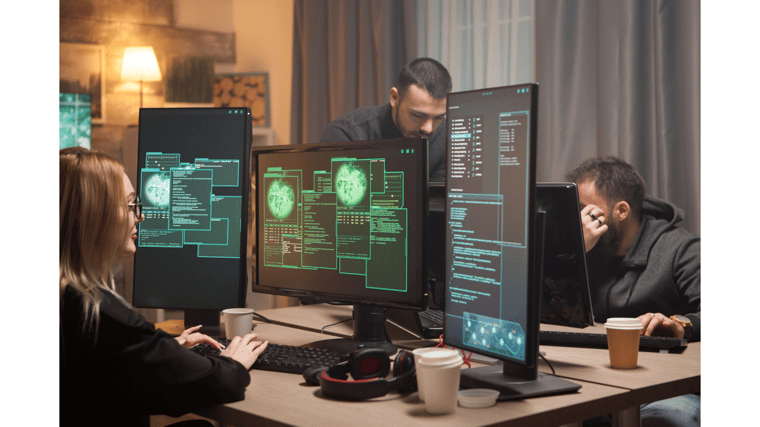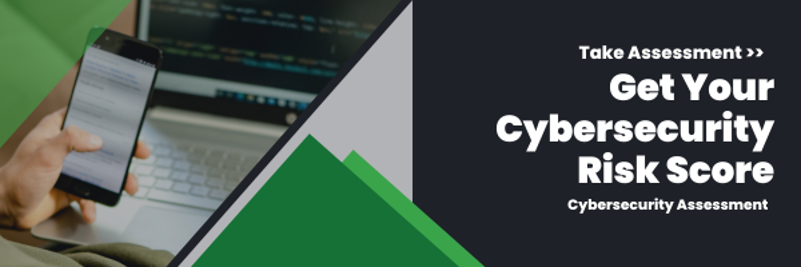As the world becomes more interconnected, modern warfare has expanded beyond traditional land, sea and air domains. The new battle lines now include the virtual realm.
Cyber attacks have become a pervasive and increasingly potent weapon, and they escalate during periods of conflict and war as groups take advantage of the tumultuous times. With the current Israel-Hamas War, hacktivists or groups engaged in cyber attacks are being used to further their geopolitical causes and disrupt the other side. Israel has seen an 18% rise in cyber attacks recently, according to Check Point Research.
Understanding the complexities and consequences of cyber attacks during times of war is essential since it’s not only governments targeted by cyber attacks; private businesses are increasingly caught in the crossfire and can experience devastating costs. Nations and businesses can invest in robust cybersecurity measures, international cooperation and diplomacy to try and mitigate cyberwarfare risks.
What Is Cyberwarfare?
Cyberwarfare is when state and non-state groups use technology to attack other countries or states. Although cyberwarfare takes place online, it can affect the physical world. Groups of people can be cut off from information, services and infrastructure needed to survive.
Cyberwarfare is increasingly viewed as an extension of a country’s military powers. By successfully implementing a cyber attack campaign, countries can experience devastating effects and sometimes help decide the outcome of a war or conflict.
Read more: What is Cyberwar, and How Does It Work?
Why Do Cyber Attacks Increase During Wartimes?
There are two main reasons why cyber attacks increase during wartime: anonymity and disruption.
- Anonymity: One of the main reasons why cyber attacks have become more prevalent during wartime is the anonymity it provides. State and non-state actors can launch attacks from remote locations or copy the attack styles of other states, making it difficult to attribute attacks to a specific source. This also allows them to maintain plausible deniability, which is crucial when they want to avoid full-scale conflict or international backlash.
- Disruption: Cyber attacks can target businesses, infrastructures, communication systems, governments and military networks, causing widespread disruption. They can also spread misinformation and propaganda, amplifying chaos and confusion during a conflict.
Types of Cyber Attacks During Wartime
Several prominent types of cyber attacks occur during wartime:
- Distributed Denial of Service (DDoS) attacks: DDoS attacks involve overwhelming a target’s servers or network infrastructure with traffic so it can stall or crash, rendering them inaccessible to legit users and causing a loss of productivity, revenue and reputation. During wartime, DDoS attacks can disrupt communication and coordination. For example, the hacktivist group “Ghosts of Palestine” urged hackers to target Israeli and U.S. private and public infrastructure. Nonprofit United Hatzalah, which provides emergency medical services, experienced DDoS attacks, as did the Jerusalem Post.
- Cyber espionage: State-sponsored hackers can engage in cyber espionage to gather intelligence on enemy operations, which can be crucial in making strategic decisions.
- Ransomware attacks: Ransomware has gained serious notoriety in the modern era. Hackers will encrypt a victim’s data and then demand a ransom for its release. In wartime, this can cripple a nation’s infrastructure, making it more vulnerable to other attacks.
- Critical infrastructure attacks: These attacks target energy grids, transportation, healthcare, shipping ports, water supplies and other critical infrastructure to disrupt daily life during war and conflict. For example, the Israeli electrical grid, a rocket alert app and the Iron Dome missile defense system have all reported attacks.
- Zero-day attacks: These attacks are when cyber criminals realize that a security hole exists in a software program. Hackers then race to take advantage of the vulnerability before the developers release a patch and fix the hole.
- Phishing attacks: With phishing attacks, hackers strive to gain personal information about employees or customers. They can then launch further attacks with that information, impersonating the company or employees.
Read: Lessons from Cyberwar: How to Improve Cybersecurity in Your Business
Is Your Business at Risk?
Since businesses can be affected by increased cyber attacks during times of conflict and war, it's important to know if your business is at risk. A recent FBI statement on the Israel-Hamas conflict serves as a stark reminder that the digital domain is not exempt from the turmoil of geopolitical events.
As the FBI monitors threats both in the U.S. and overseas, they've noted an increase in reports of threats against various communities and institutions. This heightened state of alert is a critical moment for businesses to get everything in order when it comes to cybersecurity. With adversaries taking advantage of global tensions, it's imperative for organizations to be on the lookout for cyber attacks and bolster their defenses.
How to Protect Against Cyber Attacks
You can protect against cyber attacks using dozens of protective measures, including:
- Keep your cybersecurity practices and software up to date
- Be suspicious of emails, texts and social media messages from unknown senders
- Think before you click, and never click on suspicious links or downloads
- Enforce a strong password policy
- Train employees and staff on how to recognize and respond to cyber threats
- Conduct security audits to identify vulnerabilities so you can fix them
- Utilize two-factor authentication
- Implement antimalware and antivirus software
- Install firewalls and encryption practices
- Only download software and apps from trusted sources
- Limit local admin rights
How Thriveon Can Help Protect You
For over 20 years, Thriveon has provided managed IT and cybersecurity services to our clients. We reduce IT issues and risks with our 500-point IT inspection where we align your business goals with industry best practices to protect your company from cyber threats.
Schedule a meeting with us today and find out how we can help protect you.

